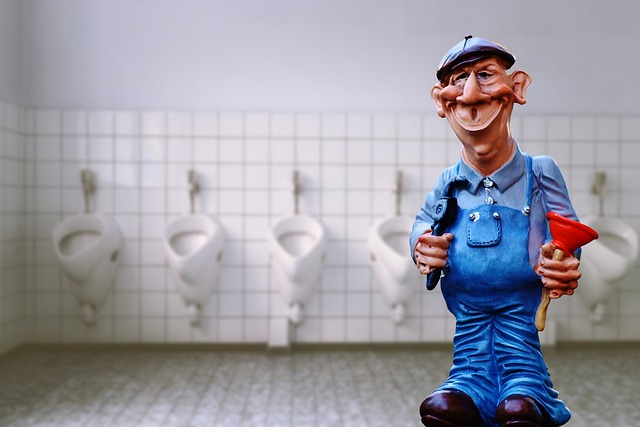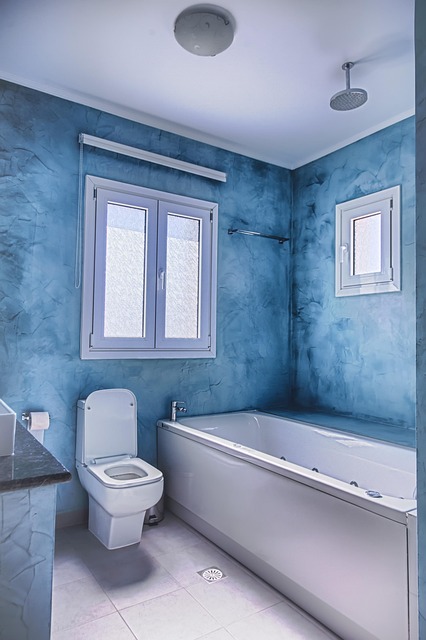To unclog a toilet, identify the cause (foreign objects, hair, grease, mineral residue) and choose tools accordingly: DIY methods like plungers, snakes, baking soda/vinegar for minor clogs, or professional help for severe issues like root intrusion or broken pipes. Recognize signs needing expert intervention: persistent clogs, water damage, unusual noises, recurring problems, or complete drain stoppages.
Unclogging a toilet can be a common household chore, but knowing when to tackle it yourself or call in a pro is essential. This guide breaks down everything you need to know about toilet clogs, from understanding their causes to effective DIY methods using simple tools like a plunger and snake. We also outline clear signs indicating when it’s time to call a plumber for professional assistance, ensuring you get the job done safely and efficiently. Learn how to unclog a toilet like a pro!
- Understanding Common Toilet Clogs & Their Causes
- DIY Unclogging Methods & Tools
- When to Call a Plumber: Signs You Need Professional Help
Understanding Common Toilet Clogs & Their Causes

Toilet clogs can be frustrating and embarrassing, but understanding their causes is the first step in knowing how to unclog a toilet yourself. Common culprits include foreign objects like toys, sanitary products, or paper products that have been flushed down the drain. Hair, grease, and mineral buildup from hard water are also frequent offenders, creating a sticky residue that traps waste and causes clogs.
Identifying the type of clog is key to deciding whether to tackle it yourself with household items like a plunger or a chemical unclogger, or if you need professional help. For instance, while a simple hair or paper product clog might be easily remedied at home, a more severe blockage caused by roots infiltrating your pipes or major structural issues will require the expertise of a plumber.
DIY Unclogging Methods & Tools

If you’re wondering how to unclog a toilet, there are several DIY methods and tools that can help you tackle this common household issue. One popular approach is using a plunger, which creates a seal and exerts pressure to dislodge the clog. Plungers come in various types, such as cup-style or bell-shape, each designed for different toilet shapes and sizes. Another effective tool is a snake or auger, a flexible metal cable that you feed into the drain to break up and remove the blockage. These tools are readily available at home improvement stores and can be used safely by following simple instructions.
Additionally, household items like baking soda and vinegar can be combined and poured down the drain as a natural cleaning agent to dissolve minor clogs. Boiling water can also help loosen and flush away blockages. While these DIY methods are convenient and cost-effective, they may not address more complex or persistent toilet clogs. Recognizing when to call in a professional plumber is crucial, especially for stubborn clogs, mysterious water damage, or unusual noises indicating potential pipe issues.
When to Call a Plumber: Signs You Need Professional Help

If you’ve attempted the standard methods of how to unclog a toilet and found yourself still facing a blocked drain, it might be time to consider professional assistance. While many DIY solutions can address minor clogs, persistent or severe blockages often require specialized tools and expertise. Signs that your toilet issue demands a plumber include:
1. Unsuccessful Attempts: If you’ve tried multiple DIY unclogging techniques without success, such as using a plunger, chemical drain cleaners, or boiling water, it’s wise to call a professional.
2. Severe Clogging: Persistent clogs that reoccur frequently or severe blockages that prevent the toilet from draining at all are red flags. These could indicate deeper issues like broken pipes, tree root intrusion, or other structural problems that require expert diagnosis and repair.
Knowing when to tackle a toilet clog yourself and when to call for professional help is key to maintaining a clean and functional bathroom. While DIY methods can often clear minor clogs, persistent or severe blockages may require the expertise of a plumber. Understanding common causes and employing the right tools can empower you to handle simple issues. However, if you’re unable to resolve the problem, don’t hesitate to reach out to a professional for swift and effective unclogging solutions.
